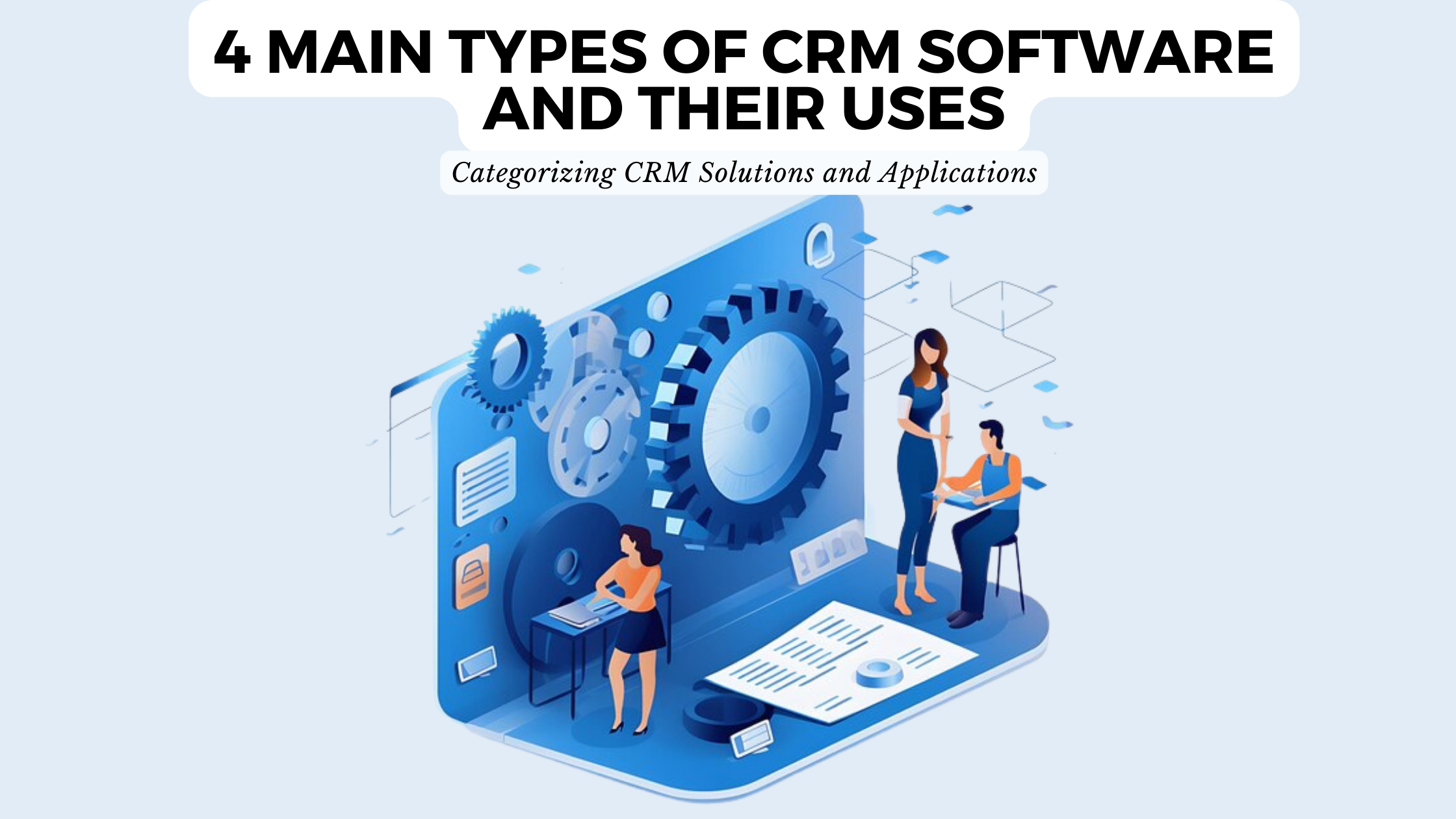4 Main Types of CRM Software and Their Uses: Categorizing CRM Solutions and Applications
- Proposal Software Customer Relationship Management


4 Main Types of CRM Software and Their Uses: Categorizing CRM Solutions and Applications
Customer Relationship Management (CRM) software has become an essential tool for businesses to manage and optimize their customer interactions. There are four main types of CRM software, each with its unique features and applications12.
1. Operational CRM
Operational CRM improves your business’s operational efficiency through automation1. It specifically covers three core areas — sales, marketing, and service — to streamline tasks and enable your teams to deliver top-notch experiences to customers3.
Example: Salesforce Salesforce is a comprehensive CRM platform that provides sales and customer service capabilities for both B2B and B2C domains4. It helps businesses work more efficiently, easily surface key metrics, and share business data via integration5.
2. Strategic CRM
Strategic CRM focuses on customers and their interactions with your business1. It helps you understand and anticipate customer needs, enabling you to deliver personalized and relevant experiences across all touchpoints6.
Example: Zendesk Sell Zendesk Sell is a sales CRM software tool that enhances productivity, processes, and pipeline visibility for sales teams7. It provides a seamless flow of information across the entire customer lifecycle7.
3. Analytical CRM
Analytical CRM organizes and analyzes customer data with a focus on metrics, such as recurring revenue, top sales accounts, and customer retention rates1. It uses advanced forecasting and AI tools to turn data into actionable insights8.
Example: Pipedrive Pipedrive is a sales CRM software that manages your sales, marketing, and support in one platform9. It offers robust data management, advanced analytics, and flexible dashboards and reports9.
4. Collaborative CRM
Collaborative CRM focuses on sharing customer information among internal teams1. It centralizes customer data where marketing, sales, and service professionals can see it, enabling better visibility into customer issues and expedited service6.
Example: Microsoft Dynamics 365 Microsoft Dynamics 365 is a set of intelligent business applications that helps you run your entire business and deliver greater results through predictive, AI-driven insights10. It provides a real-time, 360-degree view of your customers10.
Other Noteworthy CRM Solutions
- Oracle Advertising and Customer Experience11: Oracle’s CRM solution helps companies manage interactions with current and potential customers, partners, and suppliers in a single place11.
- NetSuite CRM12: NetSuite’s CRM software delivers a real-time, 360-degree view of your customers12. It provides a seamless flow of information across the entire customer lifecycle12.
- Zoho CRM13: Zoho CRM is an online Sales CRM software that manages your sales, marketing, and support in one platform13.








